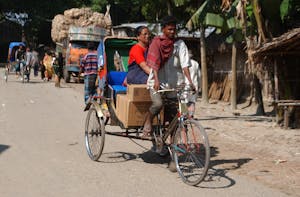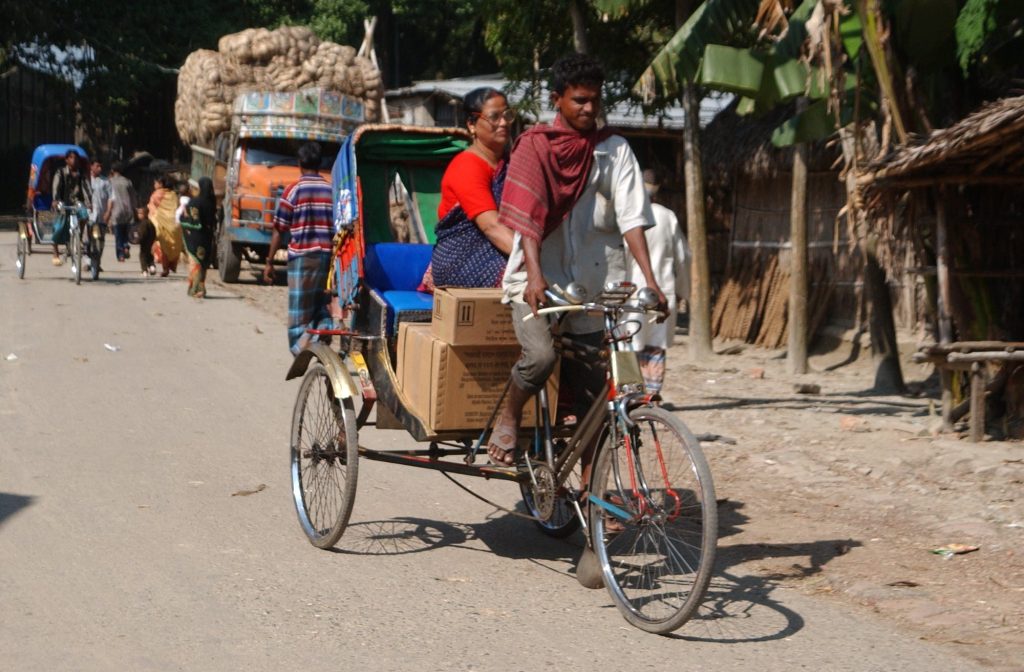Questions asked and answered at the 2019 Women Deliver conference
Earlier this summer, we hosted a session about women’s health, dignity, and the products they need to protect and strengthen both at the 2019 Women Deliver conference, the world’s largest gathering on gender equality and the health, rights, and well-being of girls and women.
Yet long after and far beyond the halls of the Vancouver Convention Center, the clarity and conviction of the discussion has stayed with us.
Our discussion explored the power of a simple question: “What if women drove the product journey for essential health supplies?”
Lia Tadesse, State Minister of Health, Ethiopia; Malyse Uwase, of Kasha, Kenya; and Leila Caleb, of the White Ribbon Alliance, India joined us to answer that question. Though these experts brought different experiences and perspectives to our inquiry, we discovered that we are all united in our point-of-view: Women’s needs, women’s choices, and women’s voices must be better represented in the myriad decisions, relationships, and actions that influence what, when, and how essential health products reach the women and girls who need them. It will be required to ensure the better outcomes we all want.
A large and lively audience of participants wanted to know about the perspectives of a senior policymaker (Dr. Tadesse), a retail entrepreneur (Malyse), an advocate (Leila), and a supply chain specialist (Carolyn), as well as to share their own. What did we hear and what did we learn?
Making it pink doesn’t make it for women.
Too often products are not designed with, for, or by women. And making it pink doesn’t fix that, to relay a smart comment from our audience. But what is required to design and deliver what women need? It must be formulated based on data about women’s health, not men’s health. It must be freely available to her, without spousal or parental approval. It must be designed and packaged in ways that are informed by women’s preferences and needs. It must be sold or distributed discreetly, appropriately and conveniently, based on women’s real lived experience.

A female health volunteer moves her supplies closer to the client in Bangladesh. (Photo credit: JSI, 2002).
There are too few women decision-makers in the extended supply chain—from manufacturers to customers.
We will fail to deliver products that are responsive to the needs of girls and women if the design and delivery process fails to respect a clear imperative: nothing about us without us. Yet in the global retail and consumer goods sector, where women control 73% of purchases and make up more than 45% of the lower levels of the workforce, women occupy fewer than 30% of more senior positions and only 13% of the C-suite roles – lower than any other industry.
The gender gap is also too high in the pharmaceutical and biotech sectors, which create the pipeline for health products. While globally women make up 42% of science professionals, they fill less than one-quarter of top executive positions and less than one-third of the board seats of the biggest pharmaceutical companies. And in the supply chain itself, women make up 37% of the workforce, but fewer than 25% of senior ranks – and fill only 14% of C-suite roles. Without women in strategic leadership and decision-making roles in those sectors, women taking control of the product journey is unlikely.
When the White Ribbon Alliance asked, “What do women want?” women answered: “Health supplies.”
Who knew? (Well, we knew … ) It was fantastic to see this borne out by the White Ribbon Alliance’s compelling global campaign, in which they asked 1.2 million women about their health needs. “Respect” was the overall top choice, which gets a huge thumbs up from us, but “supplies,” including contraception and menstrual health supplies, was right up there – finishing in the top three for every age group, and as the number one priority for women 45-54 years old and older than 55.
 A health worker listening to what women want in Indonesia. (Photo credit: JSI, 2006)
A health worker listening to what women want in Indonesia. (Photo credit: JSI, 2006)
It’s time to re-imagine how politics and markets impact women’s health options.
Women Deliver 2019 was animated by the theme, “Power. Progress. Change.” It is clear that all three are either constrained or unleashed by politics.
Pretending that’s not true doesn’t make women’s options in the marketplace any better. Instead, women have to make the full force of their numbers felt politically, so they can shape the marketplace for women’s healthcare and drive the product journey for the health supplies they need and desire.
If our view is – as Malyse from Kasha put it so succinctly – “The customer is queen!” now it is our job to make it so.
— By Carolyn Hart, Vice President of the International Division of John Snow, Inc. & Michelle Morse, Vice President of Girls and Women Strategy at the UN Foundation

